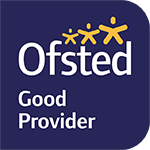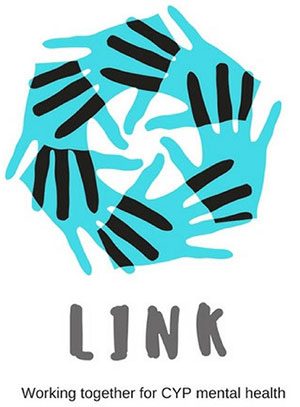Language learning enables pupils to express their ideas and thoughts in another language, and to understand and respond to its speakers. It is clear that language learning is not only a matter of developing competence in another language, it is about the broader curriculum; about children exploring the relationship between language and identity; about developing an international outlook and an enhanced understanding of the world and their place within it.
Learning another language is full of rich opportunities to develop pupils’ spiritual, moral and cultural experiences. Videos, songs, rhymes and stories all enrich pupils’ experience with cultural insights into other people’s lives. Pupils may try out aspects of another culture in their classroom, such as food, clothes or celebrations, building a positive understanding of key features of personal and national identity, values and beliefs.
Learning a language equips pupils to express themselves in new ways. This develops their immediate sense of belonging to the wider world and starts to prepare them for future opportunities in modern life. Learning another language develops an understanding and respect for diversity, removing barriers between cultures. It is also an opportunity to look at shared values and aspirations, such as personal liberty, democracy and the rule of law.
Our aim is to develop the confidence and competence of each child in the foreign language they are learning. Our goal is for them to be passionate, curious and confident about their own foreign language learning abilities when they finish the primary school phase of their education.
We will help them develop and demonstrate substantial progress in the 5 key language skills necessary for learning FRENCH:
Speaking
Listening
Reading
Writing
Grammar
We aim to ensure that pupils of all abilities develop solid foundations in these key language learning skills – properly preparing them for the next stage of their language learning journey. These skills will develop children’s ability to understand what they hear and read and enable them to express themselves in speech and writing. We will extend their knowledge of how language works and explore the similarities and differences between the foreign language they are learning and English. We will also help strengthen their sense of identity through learning about culture in other countries and comparing it with their own.
Chosen Language: FRENCH
All classes will have access to a very high-quality foreign languages curriculum using the Language Angels scheme of work and resources. This will progressively develop pupil skills in foreign languages through regularly taught and well-planned weekly lessons in Key Stage 2.
Children will progressively acquire, use and apply a growing bank of vocabulary, language skills and grammatical knowledge organised around age-appropriate topics and themes – building blocks of language into more complex, fluent and authentic language.
All teachers will know where every child is at any point in their foreign language learning journey.
The planning of different levels of challenge (as demonstrated in the various Language Angels Teaching Type categories) and which units to teach at each stage of the academic year will be addressed dynamically and will be reviewed in detail annually as units are updated and added to the scheme. Lessons offering appropriate levels of challenge and stretch will be taught at all times to ensure pupils learn effectively, continuously building their knowledge of and enthusiasm for the language(s) they are learning.
The school has a unit planner in place which will serve as an overall ‘teaching map’ outlining for all teachers within the school what each class in each year group will be taught and when it will be taught. Each class in each year group will have an overview of units to be taught during the academic year to ensure substantial progress and learning is achieved. Each teaching unit is divided into 6 fully planned lessons.
- Each unit and lesson will have clearly defined objectives and aims.
- Each lesson will incorporate interactive whiteboard materials to include ample speaking and listening tasks within a lesson.
- Lessons will incorporate challenge sections and desk-based activities that will be offered will three levels of stretch and differentiation. These may be sent home as homework if not completed in class.
- Reading and writing activities will be offered in all units. Some extended reading and writing activities are provided so that native speakers can also be catered for.
- Every unit will include a grammar concept which will increase in complexity as pupils move from Early Language units, through Intermediate units and into Progressive units.
- Extending writing activities are provided to ensure that pupils are recalling previously learnt language and, by reusing it, will be able to recall it and use it with greater ease and accuracy. These tasks will help to link units together and show that pupils are retaining and recalling the language taught with increased fluency and ease.
Units are progressive within themselves as subsequent lessons within a unit build on the language and knowledge taught in previous lessons. As pupils progress though the lessons in a unit they will build their knowledge and develop the complexity of the language they use. We think of the progression within the 6 lessons in a unit as ‘language Lego’. We provide blocks of language knowledge and, over the course of a 6 week unit, encourage pupils to build more complex and sophisticated language structures with their blocks of language knowledge.
SEND: Inclusion is at the core of our curriculum delivery and in Languages we make adjustments and offer support to allow all children to access learning in all lessons.
Our Languages provision follows the Language Angels scheme of work. We follow a two year cycle of planning. For 2024-25 we are on CYCLE 2.
Early Language Learning
Although French learning begins in Key Stage 2, the understanding how language and communication are essential to all people begins in EYFS.
These essential skills continue into KS1 where phonics knowledge, reading, writing, speaking and listening are further developed.
All children take part in the European Day of Languages each September, which this academic Year was a celebration of French culture, song and language.
Early Years children learn, as part of their Understanding of the World, how to say “Hello” in different languages, including French, Chinese,and some Indian languages.
Two forms of assessment are available at the end of every Language Angels unit:
- Peer and self-assessment ‘I can do…’ grids. A quick and easy way for all pupils in the class to record which units they have completed and the progress they are making.
- More detailed skills based assessments using bespoke skills assessment worksheets. This form of assessment enables us to determine the learning and progression of all pupils in the key language learning skills as well as monitoring the progress against the 12 attainment targets stipulated in the DfE Languages Programme of Study for Key Stage 2.




